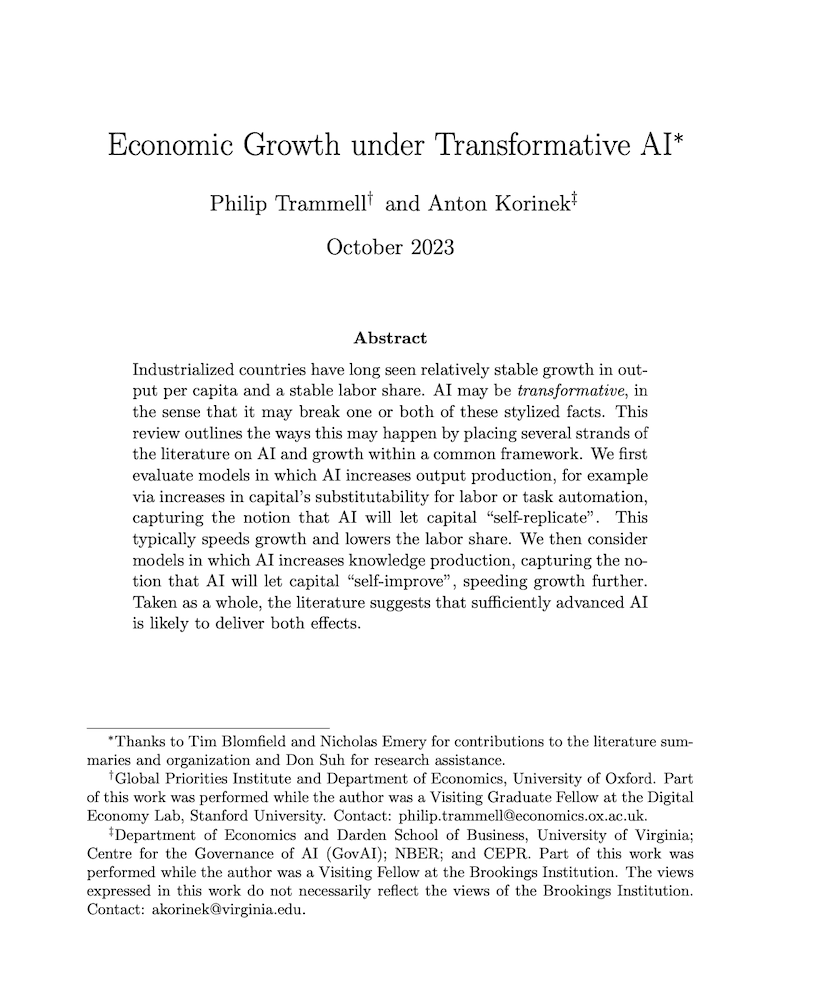Economic growth under transformative AI
Philip Trammell (Global Priorities Institute, Oxford University) and Anton Korinek (University of Virginia, NBER and CEPR)
GPI Working Paper No. 8-2020 and published in the National Bureau of Economic Research Working Paper series
Industrialized countries have long seen relatively stable growth in output per capita and a stable labor share. AI may be transformative, in the sense that it may break one or both of these stylized facts. This review outlines the ways this may happen by placing several strands of the literature on AI and growth within a common framework. We first evaluate models in which AI increases output production, for example via increases in capital's substitutability for labor or task automation, capturing the notion that AI will let capital “self-replicate”. This typically speeds up growth and lowers the labor share. We then consider models in which AI increases knowledge production, capturing the notion that AI will let capital “self-improve”, speeding growth further. Taken as a whole, the literature suggests that sufficiently advanced AI is likely to deliver both effects.
Other working papers
A bargaining-theoretic approach to moral uncertainty – Owen Cotton-Barratt (Future of Humanity Institute, Oxford University), Hilary Greaves (Global Priorities Institute, Oxford University)
This paper explores a new approach to the problem of decision under relevant moral uncertainty. We treat the case of an agent making decisions in the face of moral uncertainty on the model of bargaining theory, as if the decision-making process were one of bargaining among different internal parts of the agent, with different parts committed to different moral theories. The resulting approach contrasts interestingly with the extant “maximise expected choiceworthiness”…
In defence of fanaticism – Hayden Wilkinson (Australian National University)
Consider a decision between: 1) a certainty of a moderately good outcome, such as one additional life saved; 2) a lottery which probably gives a worse outcome, but has a tiny probability of a far better outcome (perhaps trillions of blissful lives created). Which is morally better? Expected value theory (with a plausible axiology) judges (2) as better, no matter how tiny its probability of success. But this seems fanatical. So we may be tempted to abandon expected value theory…
Are we living at the hinge of history? – William MacAskill (Global Priorities Institute, Oxford University)
In the final pages of On What Matters, Volume II, Derek Parfit comments: ‘We live during the hinge of history… If we act wisely in the next few centuries, humanity will survive its most dangerous and decisive period… What now matters most is that we avoid ending human history.’ This passage echoes Parfit’s comment, in Reasons and Persons, that ‘the next few centuries will be the most important in human history’. …

